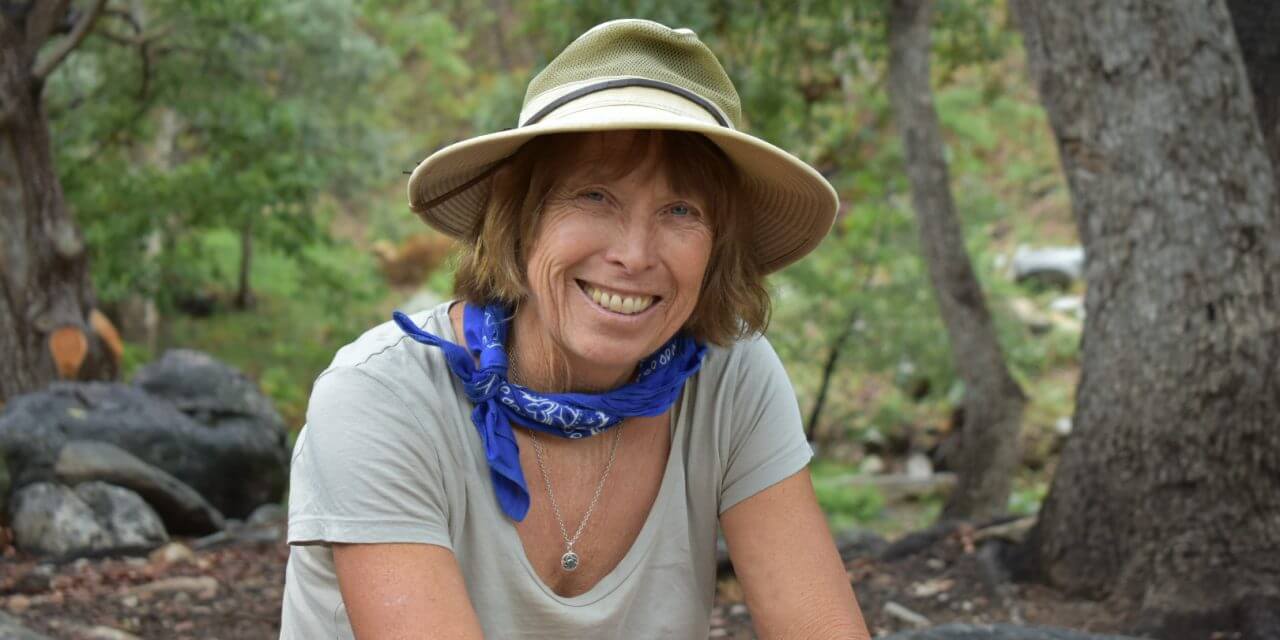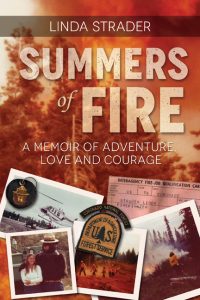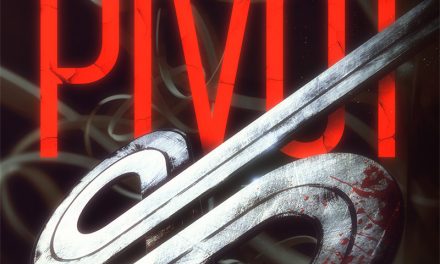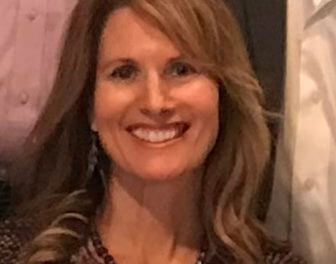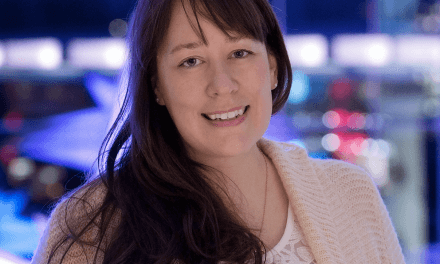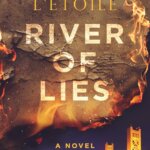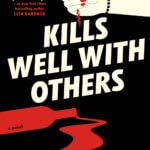Linda Strader joins me today to talk about her memoir, Summers of Fire. Originally from Syracuse, New York, Ms. Strader moved to Prescott, Arizona with her family in 1972. In 1976, she became one of the first women on a U.S. Forest Service fire crew in the Santa Rita Mountains south of Tucson. Summers of Fire: A Memoir of Adventure, Love and Courage was released on May 1, 2018 by Bedazzled Ink Publishing. In September, she became a finalist in the New Mexico-Arizona Book Awards. She is currently working on a prequel. In addition to writing, Ms. Strader is a landscape architect, certified arborist, and watercolor artist. She resides in the same area where her Forest Service career began.
SS: Can you share a bit about your background?
LS: Born and raised in Upper New York State, my parents moved our family to Prescott, Arizona in 1972 … soon after I’d started my senior year of high school. Devastating. But I learned to love Arizona. It was here I began my wildland firefighting career, lost it, attended college and earned an undergraduate degree in Landscape Architecture, and next a Masters in Land Planning. I’m a Landscape Architect, Certified Arborist, watercolor artist, and as of 2018, a published author.
SS: My ex- was born in Little Falls, so I’ve spent a fair amount of time in upstate New York. What did you want to grow up to be as a child? Has that child’s desire appeared in your work?
LS: That’s an appropriate question, because I’m often asked if I always wanted to be a firefighter when I was a kid. No, I sure didn’t. Although I must have known early on that I didn’t want the traditional kind of work available for girls in the early 1970s. Many people don’t realize that there wasn’t much to choose from back then. I could have been a secretary, waitress, retail clerk … all were not remotely what I wanted to do with my life. What did I want? I didn’t know for sure, but I kept looking until the perfect job (working for the U.S. Forest Service) found me.
SS: I know what you mean about limited choices. I finished high school in 1970 and was urged to become a nurse. I had my eyes on archeology or paleontology and dreamed of living in Africa with LSB Leakey and Jane Goodall. Instead I pursued a career as a travel then a medical photographer. Then at third-nine, I went to medical school. At sixty, I became an author. Have you always been driven to write? Or did you begin writing in response to a particular stimulus?
LS: Upon reflection, maybe. I started keeping a diary at age twelve, and journals at fourteen. I wrote pages upon pages … details of my life, relationships, thoughts and feelings, you name it. In college I wrote term papers and a thesis, and essays in my freshman English class. My professor kept one to use in future classes as an example of an essay done right. What a honor! But going beyond that? I never gave it a second thought. It wasn’t until I suffered a number of losses (my twenty-three-year marriage, my job, and my mom,) that I started to explore writing as an escape. My future looked so bleak that I turned to reminiscing about my firefighting career, which was fun, exciting, challenging, and sorely missed. I decided to write down some of my adventures, in hopes that doing so would help me get through that tough time.
SS: When I read other authors’ biographies, mine seems dull by comparison. How do you feel about your life story? Have you ever been tempted to jazz yours up?
LA: This goes against everything I’ve learned about writing a memoir. No making stuff up! But I didn’t have to even consider it. My seven years of firefighting were plenty exciting … and the subsequent events that led me to rebuilding my life, more than once, readers say are inspirational.
SS: How long have you considered yourself a writer? Did you have any formal training, or is it something you learned as you went?
LS: As I mentioned earlier, the only writing I did before my memoir was in my journals, and when I attended college. I would never have called myself a writer based on those experiences. When I lost my job, I dabbled at writing short articles about landscaping and plants for an online magazine (which paid $2 per 100 words, plus pennies for page views) … did that make me a writer? Maybe, but I didn’t really think about it. And when I started my memoir, it really wasn’t anything more than me jotting down my adventures. I came up with about ninety pages, shared it with friends, and they encouraged me to write more. Four hundred pages later, I realized I had what appeared to be a book. Was it really a book though? I didn’t know. I had no idea how to write a book, but there it was. Did that make me a writer? I never thought about it, but wondered if it was worth publishing. And that led me to joining a writers group to find out, learning about the publishing process, connecting with a retired English and creative writing teacher online—who worked on my story with me and became a good friend. When I felt ready, I queried for a literary agent. Oh my, so many rejections. Despite those setbacks, I knew I had a good story. I just had to figure out the best way to tell it. I decided to take an online class on advanced fiction writing to see if I could improve my story. Finally, after a few more edits, I landed a book deal with a traditional publisher. What’s funny is that once I made the announcement that I’d found a publisher, someone shared my news on social media, saying, “She wrote a book and she’s not even a writer!” I stared at the line in disbelief, thinking: What? I most certainly am! And from that moment forward, I considered myself a writer and an author.
SS: What are you working on at the moment?
LS: I’ve submitted the Summers of Fire prequel to my publisher, and await their decision. I’ve had a number of requests from readers for a sequel, but I’m not yet sure how I would write that, or if I want to. I do miss having a writing project, though. Fiction has never been of interest to me, but who knows.
SS: How do you give back to the writing community?
LS: When I have time, I enjoy beta reading. While I don’t consider myself a professional editor by any means, which is why I do this for free, I do think I have something of value to offer. I also feel it’s a ‘pay it forward’ gesture, as most of the beta readers I’ve connected with over the years were very helpful, if not instrumental, in helping my book get published. I have written many guest posts on blogs, sharing tips about writing memoir, publishing, and book promotion. I’m also a member of a few Facebook writing groups, where I will chime in with advice based on my writing, publishing, and promotion experiences.
SS: Which scene did you find the most challenging to write and why?
LS: Because I married (and later divorced) one of the men I met on my first fire crew, it was tremendously difficult to write about falling in love with him when I no longer felt that way. Thank goodness I had my journals, which I relied on heavily to take me back to those times when I felt far differently than I do now.
SS: Have any particular rejections inspired or motivated you?
LS: Like most everyone, when querying literary agents I faced many rejections. All were hard to take, but the ones that went beyond a form letter and pointed out in relative detail what did not work for them, were particularly tough. However, once the initial sting wore off, I recognized that because these agents took the time to be specific, I should pay close attention to their feedback. There is no doubt in my mind that those comments made my story and writing much, much better. This is one reason why I am a firm believer in going the traditional publishing route, even if you end up self publishing later. When you evaluate the advice of seasoned professionals, I can’t see how you can go wrong.
SS: What’s something memorable you’ve heard from your readers/fans? What’s been the best compliment?
LS: There are many wonderful comments and reviews posted about my book, but this one was the most humbling: Although it might be easy to characterize the book as being for women because of its inspirational message about trying to make it in “a man’s world,” men would greatly benefit from reading it, too, if only to learn that it takes more courage to fight for respect and dignity than it does to fight a wall of flames. (James Lewis, Forest History Today magazine)
SS: Are there any books on writing you find particularly useful and would recommend? (Please include links where you can)
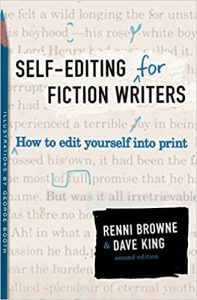
SS: A good novel has rising and falling action leading to a climax. Were you able to incorporate those into your memoir?
LS: Most definitely. My story is a roller coaster ride throughout my firefighting career, where I fought for the right to do the work I loved, facing discrimination and physical challenges, struggled with love and relationships, and after an injury, rebuilt my life.
SS: A good memoir has an ah-ha moment in which you realize personal growth. How did you handle your revelatory moments?
LS: I agree that this is an important component for a well-written memoir. While some writers pepper reflections throughout the story, I decided to write mine without interjecting my current thoughts into the story. Personally, I think they can be distracting. Instead, I put the revelations at the end, where I—and my publisher—think they work.
********************
Summers of Fire is available through:
Amazon US | Amazon UK | B&N
********************
An excerpt from Summers of Fire:
“Uh-oh,” my crewmate Joe said, staring behind us. “There go our packs.”
My Pulaski froze mid-swing. I lowered it to my side, momentarily forgetting the wildfire in front of me. Smoke swirled between the two of us. I leaned around Joe and saw nothing but pine trees on fire, which, all things considered, made sense. Where did our packs go? Was an animal dragging them away? Then it hit me. Our packs were up in flames. The forest fire had jumped our line—the narrow defensive belt of raw earth we’d feverishly clawed through the woods. All of our gear. Gone. Including our canteens of precious water.
This was my first fire; but not Joe’s. When he said we’d just rebuild the line, I thought, okay, no big deal. He seemed calm, and not too concerned about when we’d get more water, so I didn’t worry about that either. Even with our gear a pile of ashes, we’d no choice but to continue to build line. In my hands I clutched a Pulaski, invented by a forest ranger for just this kind of work. A combination ax and hoe, it made building line easier. Easier, but still brutal hard work. With flames a mere foot away, I removed fuel from the fire’s path, down to bare mineral soil, our fireline. My arm muscles burned from swinging the ax end at small trees, my back pinched from scraping pine needles and the duff underneath them with the hoe. Intense heat from the fire and exertion made me thirsty. A drink of water wouldbe really good right now. I had some gum in my pack, which might have helped, but it had been turned into a melted glob. As I chopped and scraped everything to bare earth, I mentally inventoried what I’d lost besides my canteen: headlamp, socks, my Levi jacket. Damn, I really liked that jacket.
While we were focused on our work, the sun rose higher in the sky. Temperatures had climbed over ninety, I figured. My mouth felt like the dry, dusty, desert below. I so wanted a drink of water. I really needed a drink of water. An abrupt shift in the wind funneled smoke into the draw like water pouring from an overflowing dam. My eyes stung, teared, my vision blurred. I tried holding my breath, but couldn’t for long, and smoke filled my lungs. My chest seized, hurt, and I exploded into a coughing fit. Remembering the bandana around my neck, I retied it bandito style over my face.
“Over here!” Joe said, waving me on. “Get down low.”
Crawling, choking, with tears streaming down my face, I followed him. Instead of my heart pounding from the hard work, it thumped with the fear that we’d be overcome by smoke. At the edge of a ridge, I yanked down my bandana to suck in fresh air, terrified it wouldn’t be enough, terrified that I’d inhaled too much smoke. Soon oxygen filled my lungs, and I breathed easier.
I turned to Joe, who was also recovering …
“We’ll wait till the smoke clears,” he said hoarsely.
I nodded, grateful he knew what to do.
********************
You can follow Linda on social media here:
********************
This post contains Amazon Affiliate links. As an Amazon Associate, I earn a small amount from qualifying purchases.
